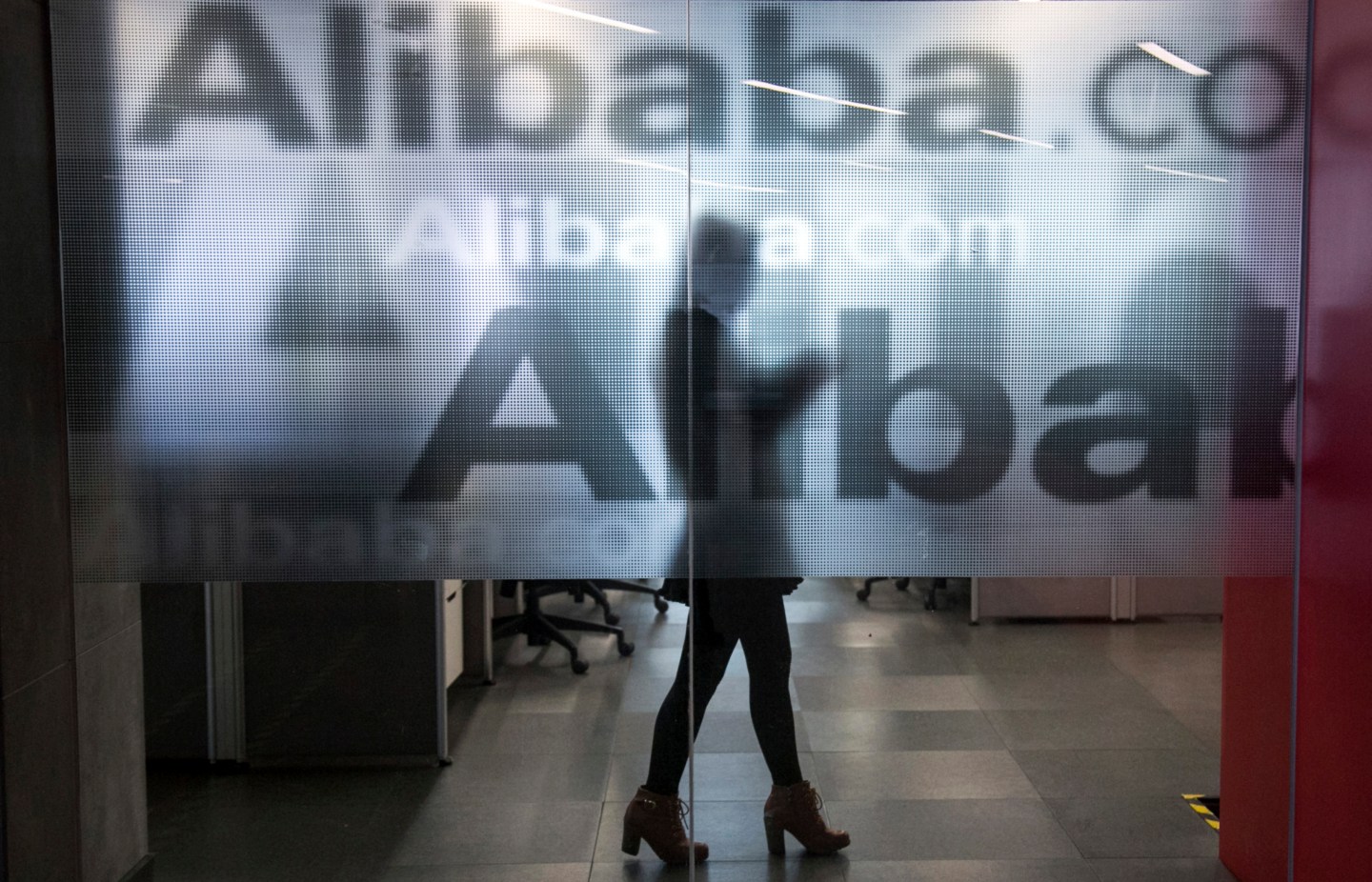Alibaba Group Inc’’s (BABA) quarterly earnings report released this morning—which beat expectations on revenue and sent the stock soaring 10% in pre-market trading—should give pause to critics who believed the company, and its shares, were doomed this year.
Yes, China’s economy is slowing down. That hurts Alibaba. But as China’s GDP growth slows, a larger percentage of growth is coming from the services industry—and less from heavy industry—which Alibaba squarely dominates in the country.
In the first quarter, Alibaba’s revenue grew 45% year-over-year and the closely-watched gross merchandise value on its marketplaces grew 40% to $97 billion. GMV is metric eBay invented as a better gauge for the activity on its platforms because, like Alibaba, it doesn’t actually sell the goods but rather hosts small storefronts.
That figure may be more impressive than it sounds. Alibaba faced regulatory pressure last year in China for hosting fake goods and that hasn’t fully dissipated. More recently, the little-known practice of ‘brushing’ has gained attention. Brushing increases Alibaba’s GMV when sellers on its Taobao platform book false sales—shipping nearly empty boxes to accomplices—in order to boost their search results position. Alibaba has vowed to spend more to clean up the practice.
In the near term, what the increased attention from regulators on brushing means is that Alibaba faces harder year-over-year GMV comparisons. Analysts say the new figures should be “cleaner.”
Before today, Alibaba’s stock had fallen almost 25% during the year and pessimism had begun to creep into discussions about the company. In the last quarter of 2014 the company missed revenue growth estimates—often the death knell for growth story like Alibaba’s. Half the China-based business executives I asked earlier this year expected Alibaba’s stock to fall as the luster from last year’s IPO fades and competition increases from rivals JD.com and Tencent.
One quarter doesn’t change much, and neither does Alibaba’s 10% stock bounce today, but together they show the company’s momentum isn’t gone.
During the earnings release founder Jack Ma also announced the company would be changing CEOs. Daniel Zhang, the COO, will replace Jonathan Lu as CEO next week. The move could be a reaction to the criticism Alibaba has faced from regulators and signal Alibaba is starting afresh in efforts to overcome fakes and illegal practices like brushing—another move to reverse what until now has been a disappointing year.
[fortune-brightcove videoid=4032291588001]
Zhang has won plaudits from Ma and others within Alibaba for growing Singles Day, a holiday invented in the late 1990s in China’s old capital city of Nanjing as a kind of anti-Valentine’s Day celebration. Alibaba has co-opted it to drive online shopping. Last year Zhang was a key architect of the day in which Alibaba’s shoppers spent $9 billion. Otherwise, Zhang is little known outside Alibaba. He worked at accounting houses PricewaterhouseCoopers and Arthur Andersen before joining Alibaba in 2007 as the CFO of its Taobao.com unit. In 2013 he was promoted to COO.






